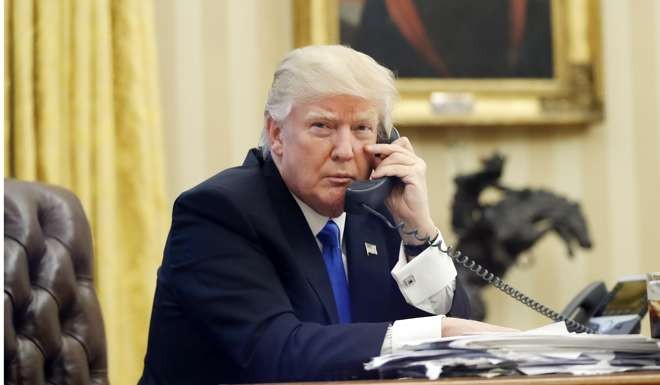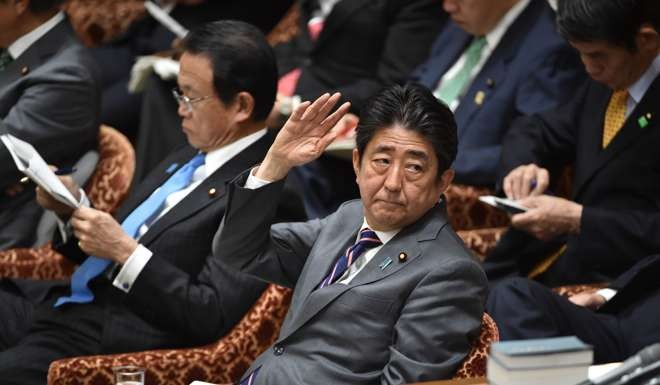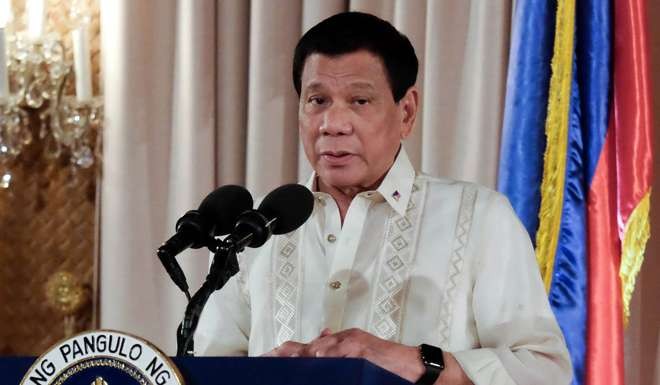Hong Kong could be slammed under this dire global trade scenario
‘Any conflicts that disrupt regional trade will have immensely amplified impacts on our trade-dependent economy’

After two weeks of relentless “America first” rhetoric from the Pinocchio Apprentice, and a blizzard of proclamations, presidential memoranda, and executive orders that threaten trade, migration, international tax rules and global currency levels, there can hardly be a government worldwide – or a multinational business for that matter – that is not scurrying for the safety of a bunker while hastily re-reading Nassim Taleb’s Black Swans.
Except for Hong Kong of course, where we have been distracted by a little local election and the appalling abduction of a mainland billionaire from the safe haven of the Four Seasons hotel. While this distraction is understandable, my sense is that even Hong Kong’s distraction from the world’s “main event” can only be short-lived.
From Mexico and Germany to Japan and China, top officials and their think tanks will be scenario-planning what can possibly happen next, and how best to respond to even the most improbable scenarios. If the Apprentice’s Art of the Deal aims at creating confusion and uncertainty as a starting point for any aggressive negotiation, then Donald Trump has succeeded in spades.
Thoughts go back to 1895 and Rudyard Kipling’s poem If: “If you can keep your head when all about you are losing theirs and blaming it on you… you’ll be a man, my son!”
Thoughts also go to Duterte’s Philippines, where he has been drafting his own version of Art of the Deal, and using unpredictability as a primary policy tool. Which may perhaps be playing with fire, since I fear the Philippines may be more in the Pinocchio Apprentice’s firing line than Duterte or others in the region currently recognise.

I am thinking in particular about the Philippines’ two main foreign exchange earners, and major contributors to the economy – overseas Filipino workers and business process outsourcing. Surely both of these pillars of the Philippine economy have to be vulnerable while the Pinocchio Apprentice is railing against migration, and the imperative to bring America’s jobs back home. Given the importance of both to the Philippine economy, the cause for concern must be high.
The Philippines’ estimated 10.4 million overseas workers remit annually more than US$27 billion – nearly 12 per cent of GDP. While the huge majority of these workers live and work in Saudi Arabia and the Middle East, and a bare 6 per cent work in the US, around one-third of remittances come from the US – a measure of the superior salaries they earn there, no doubt. Moves by the new US administration to give jobs back to American people could have a savage impact on these remittances.
So too with the fast-growing business process outsourcing activity, which has grown from nothing barely a decade ago, and now employs an estimated 1.3 million people in the Philippines, most of them currently living around the capital Manila, and earns more than US$25 billion a year – about 10 per cent of GDP.

The business began with simple call centres, but today is much more complex, with a wide range of back-office activity for global banks and accounting firms. The great majority of investment in business process outsourcing activity has come from the US. In particular I recall one company that employs hundreds of medically trained locals to scrutinise x-rays sent overnight from hospitals across the US. Instead of getting back to patients after a week or more with concerns over abnormalities revealed in the x-rays, US doctors using this service were able to revert within a day to patients with problems.
As internet and telecoms speeds have improved, so smarter and smarter operations have become possible, underpinning plans to grow this activity to over US$50 billion by 2020, employing around 2.6 million people.
While much of Trump’s rhetoric has been targeted at manufacturers, this kind of employment “off-shoring” must surely be low-hanging fruit for the new and xenophobic Trump administration. No matter that sick people return to having to wait a week for hospital test results. And it cannot help that Duterte has been so energetic in his anti-US rhetoric. Perhaps his appointment of a new ambassador to the US that is a long-time friend and business partner of Trump may help, but it is perhaps unsurprising that a senior advisor to the American Chamber of Commerce in Manila said last week that current uncertainties would “bear down on optimism for near-term growth” in the BPO sector.

While these Philippine examples provide obvious areas of economic vulnerability in the new Trumpian era, there can be very few economies around the Asia-Pacific that can be sanguine about the battles that seem likely to lie ahead. Japan’s Shinzo Abe is already bristling over accusations that Japan manipulates its currency – as is Germany’s Angela Merkel. Vietnamese business delegates visiting Washington last week will have been anxiously reviewing what can be salvaged from the wreckage of the Trans-Pacific Partnership, from which they were expected to be among the greatest beneficiaries.
And these are likely to be minor skirmishes compared with the battles soon to be engaged with the US’s biggest trading partners – Canada, Mexico and of course China.
While we here in Hong Kong have yet to turn our minds to the challenges ahead, it must be certain that any conflicts that disrupt regional trade will have immensely amplified impacts on our trade-dependent economy. Singapore should be nervous for similar reasons. Our companies have yet to turn their thoughts to how they will best respond, but there must be a sense at present of a calm before a storm.
As I travel next week to Nha Trang in Vietnam and the first of the year’s APEC meetings, it will be fascinating to gauge the mood created by the election in the US of Pinocchio’s Apprentice. One thing must be sure: the comradely mood maintained at their last meetings in November – one of ex-President Obama’s last overseas ventures – may be hard to sustain.
Officials would do well to keep the words of Rudyard Kipling’s poem close at hand: “If you can keep your head when all about are losing theirs and blaming it on you…”
David Dodwell researches and writes about global, regional and Hong Kong challenges from a Hong Kong point of view